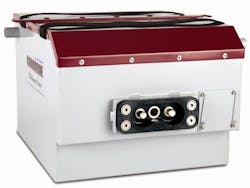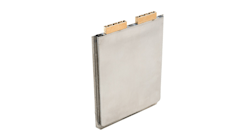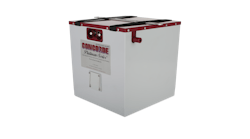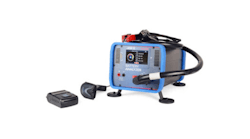Concorde Battery Announces Agusta AW139 STC with US, Canadian and Brazilian Validations to replace Nickel Cadmium with Sealed Lead Acid Batteries
WEST COVINA, CA – Concorde Battery is pleased to announce AW139 FAA approved STC SR03072NY, Transport Canada approved STC SH11-47 and Brazil ANAC STC 2012S04-04* replacing the standard nickel cadmium batteries with Concorde’s Sealed Lead Acid Recombinant Gas (RG®), Absorbed Glass Mat (AGM) batteries. SR03072NY, SH11-47 and 2012S04-04 replace the 27AH Nickel Cadmium auxiliary battery with a RG-407, 27AH sealed lead acid battery, and the option to convert the 44AH Nickel Cadmium starting battery with Concorde’s RG-380E/44L or the higher capacity RG-380E/60L. Some AW139 operators who requested a lead acid option conveyed a concern with slow engine starts using the standard Nickel Cadmium battery. The higher capacity RG-380E/60L is constructed with additional plates and was designed for increased cranking power, faster starts and less engine wear.
Concorde sealed lead acid RG® AGM batteries are a more economical solution to Ni-Cd batteries with no maintenance requirements and reduced cost per flight hour. Sealed lead acid technology does not have a memory and does not require unique charging equipment. Concorde’s sealed lead acid batteries are HAZMAT exempt; they are proven safe and reliable with no risk of thermal runaway. Concorde RG® Series batteries may be serviced in any battery facility, including nickel cadmium service facilities.
RG-407, RG-380E/44L and RG-380E/60L are FAA TSO C-173 approved and have passed the rigorous requirements of TSO testing.
Concorde designs and manufactures over 90 models of Original Equipment and direct replacement batteries for fixed wing and rotary aircraft and has a reputation for designing application specific solutions. Concorde batteries are installed as Original Equipment by the majority of aircraft manufacturers and adopted by military aircraft operators worldwide.
Manufacturing military and commercial TSO, FAA-PMA, and OEM certified aircraft batteries for over 30 years.
* EASA approval is currently pending.





